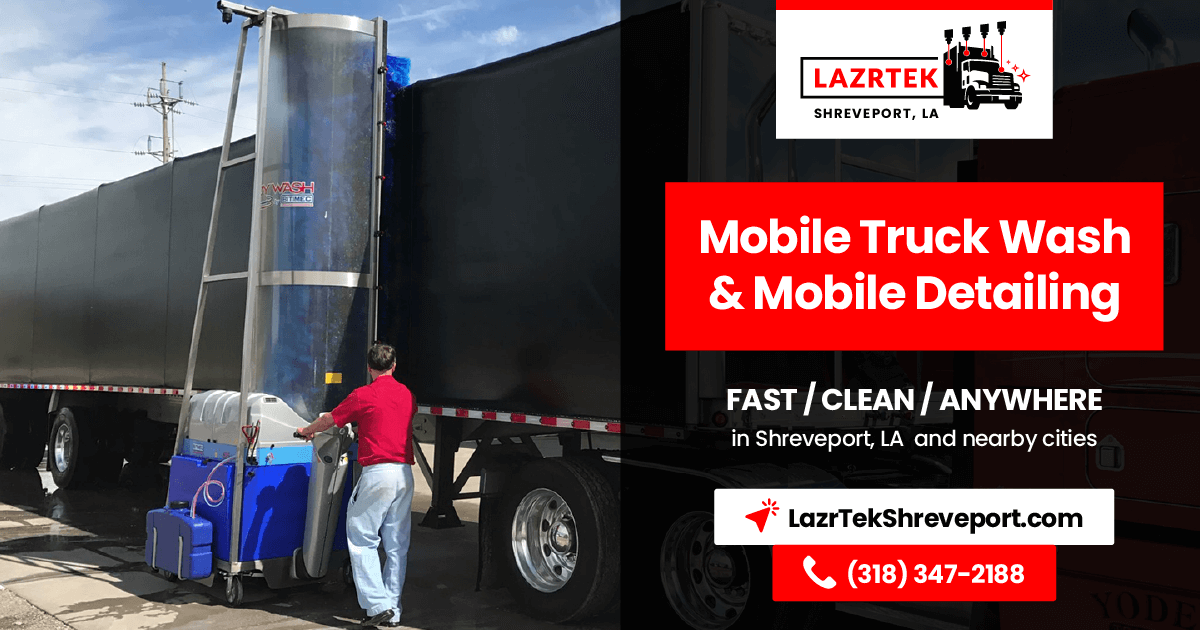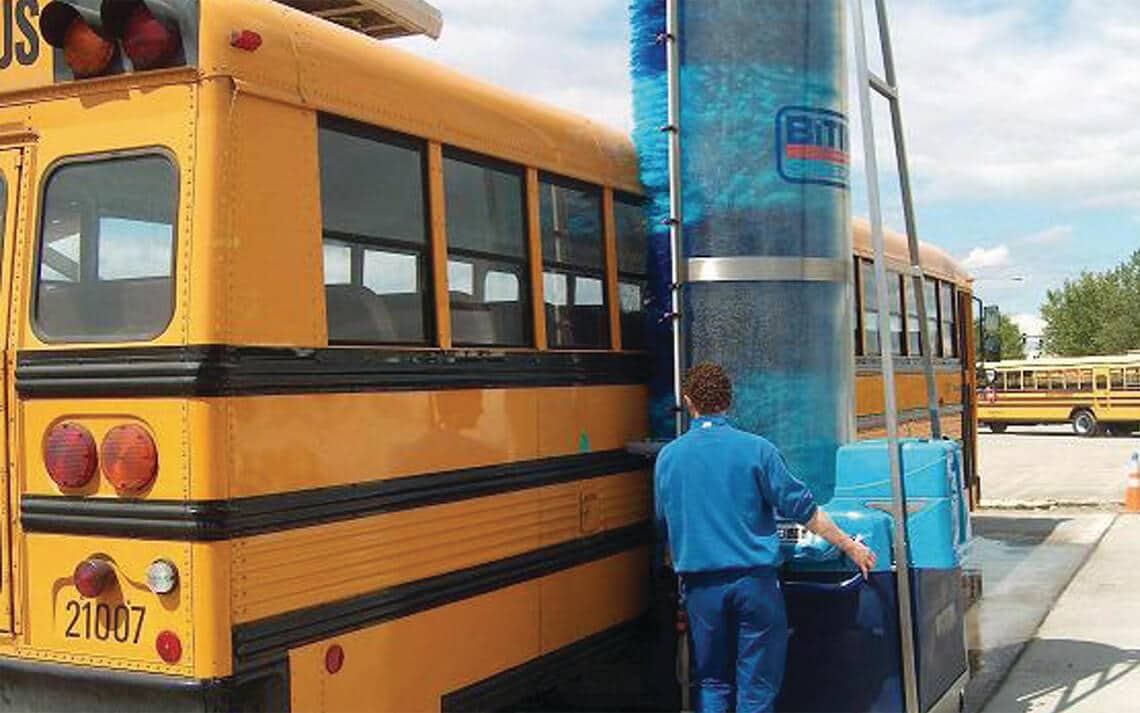Keep Your Valuable Equipment Clean
All too often fleets look at the cleaning of their trucks as an expense. And while it does cost money to keep a truck clean, the truck maintenance benefits far outweigh the cost.
The subject of vehicle washing is so important that the Technology & Maintenance Council has an entire Recommended Practice (RP433) devoted to it. If you haven’t already done so, you may want to read it.
Perhaps the most important reason to keep your truck clean is that you actually extend its road life. It’s no secret that the de-icing chemicals used on today’s roads are extremely corrosive. The longer they remain on the undercarriage of your trucks the more damage they do.
Save Truck Maintenance Costs by Keeping the Truck Clean
Keeping trucks clean is especially important if they operate in areas that use the new, stronger chemicals. But whether you wash your trucks yourself, or send them to a truck wash, it is important to remember that water can re-activate the de-icing chemicals that have dried on the truck. It is critical that whoever is doing the washing be mindful of the direction they wash so that the chemicals are not pushed deeper into the components where they can cause more problems.
If your trucks never venture into winter conditions, consider yourself lucky, but don’t use that as an excuse to avoid washing them. General dirt, debris and grime from the road attaches to components and can interfere with their proper operation.
A clean truck also makes it easier for drivers and technicians to notice things like chaffing lines, electrical problems, cracks and damage to components. If components, parts, systems and sub-systems are covered in a layer of dirt or grit, problems are much harder to spot.
CSA (Compliance, Safety, Accountability) inspectors have their choice about which vehicles to pull over for a roadside inspection. The vehicle’s appearance can mean the difference between your driver being pulled over or not. Whether it is right or wrong, an inspector assumes that a truck that looks shoddy on the outside is less likely to be maintained properly.
While there is no guarantee you won’t ever get pulled over if your truck is clean, I can say with certainty that a filthy truck is a red flag for inspectors.
Then there is the image piece both for attracting drivers and for new customers. The driver shortage means good qualified drivers have a choice of where to work. Given a choice between a fleet with shiny clean trucks and one whose trucks are covered in dirt and grime, which one do you think they’ll choose?
And drivers are not the only people you are trying to impress. Your truck is a rolling billboard, advertising for your business. Ask yourself what message you send when people see your truck covered the road grime. Shippers see carriers as extensions of themselves and do not want to be represented by someone who presents a poor image.
Truck washing it not free but the benefits are priceless: components live longer, it makes it easier to spot problems in their initial stages, drivers are happier, your image is enhanced, and your chances of being pulled over lessen with each passing mile.
Managing Truck Maintenance Costs and Asset Replacement
By leveraging total cost of operations, fleets can not only reduce the number of roadside breakdowns, but also make informed decisions on asset management.
We all know the importance of regular scheduled maintenance to keep trucks in top operating condition. Manufacturers set recommended maintenance intervals and fleets adjust those based on their own experience and the environment in which their vehicles operate. The goal, of course, is to reduce the number of roadside breakdowns and to have a low total cost of operation (TCO).
Keeping track of PM compliance is important so that needed maintenance is not deferred. However, it is also important to track the cost of maintenance and not just on an aggregated fleet-wide basis. Maintenance per mile on an asset-by-asset basis is a very important metric to focus on. It’s also important to look at unscheduled repairs between PMs — which should all be considered for a root cause analysis.
These two data points can be valuable tools in the asset replacement decision and in future component selections. Ideally you do not want to see the vehicle in your shop — or that of any outside service provider you use — at any time between PMs. In a perfect world, an asset will go from one PM service to the next without a technician ever having to work on it.
Truck Maintenance Costs
Along with that, truck maintenance cost per mile allows you to determine just how much of an asset’s operating cost is being eaten up by truck maintenance. Keep in mind when looking at cost per mile that by the time you collect enough relevant historical data the components and vehicle may have had several major alterations or enhancements.
You also should consider cost per mile by application. If you’re comparing data from a city vehicle making 25 stops per day, idling a lot, loaded to the maximum legal limit, and running low miles per year to the same vehicle operating high mileage, long haul, light loads, and low idle, you can expect very different results. In one application the cost per mile (CPM) may be $0.20 CPM and in another application is might be $0.10 CPM.
To be clear, there is no single threshold of CPM that can be used for all vocations and applications. A host of factors go into the decision for replacement — the cost and fuel efficiency of the new asset, interest rates, the state of the used truck market, safety technology, image, etc. However, when you review all factors over time you will be in a good position to make the call on when to replace a vehicle.
TCO is the deciding factor in the asset replacement decision with truck maintenance and repair costs a significant portion of that equation. Having a cost guideline for truck maintenance and repair is a good benchmark to use to start the review process so that you can keep TCO at the right level for your fleet.

Contact LazrTek Shreveport for a complimentary demonstration wash or a quote to wash your truck or fleet. Call Chad 318-347-2188, visit our website, or Book an appointment on Facebook.




